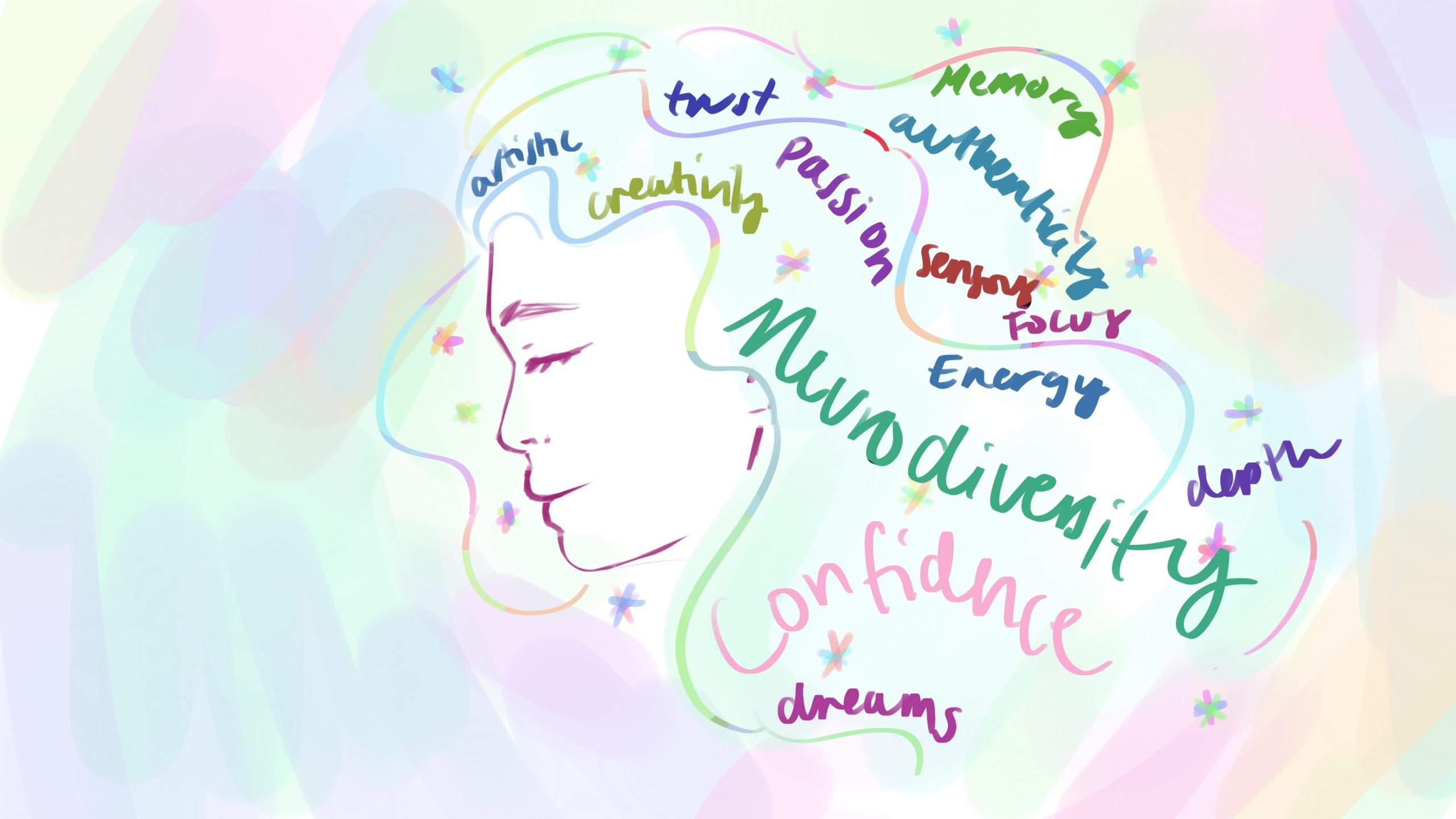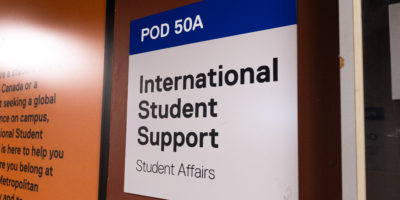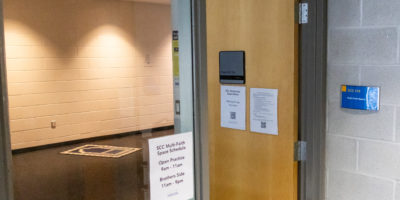By Samreen Maqsood
A new Ryerson student group, the Neurodiverse Students’ Association (NDSA), was created to provide safe spaces for students with neurological disorders.
The NDSA defines neurodiverse students as those with neurological, developmental, intellectual or learning disabilities, adding that it’s an “umbrella term” for any kind of neurological disorder.
The NDSA already has seven executive members and 23 general members. However, they’re still waiting to become an official group under the Ryerson Students’ Union (RSU). In order to do so, they must submit an application to the RSU which is then reviewed by the Student Groups Committee, who makes a recommendation for approval at an RSU Board of Directors’ (BoD) meeting.
“Our goals are to provide students…with support and resources and to raise awareness of neurodiversities”
During the winter 2021 semester, Academic Accommodation Support (AAS) hosted a pop-up session for students at Ryerson with ADHD, or Attention Deficit Hyperactivity Disorder. According to Mahim-E-Noor Mollah, a fourth-year global management studies student and vice-president of the NDSA, the event was a success with over 30 students attending.
“A lot of the students that came to the event were excited to learn that there were so many others like them and that we all related heavily based on our struggles,” said Mollah. He said during the event, the students decided to create a Discord chat for Ryerson students with ADHD, as well as others interested in joining.
In April 2021, Mollah and other students in the Discord chat came up with the idea to create a student group for neurodiverse students, with the aim of establishing a space to share their struggles and concerns. Since then, Mollah and the rest of his team have been working to launch their student group, collaborating with AAS to plan joint events in an “appropriate and respectful manner.”
“You don’t have to identify as neurodiverse to join the group, and we don’t ask you to disclose any information that you are not comfortable with. Our goals are to provide students in the Ryerson community, whether they identify as neurodiverse or not, with support and resources and to raise awareness of neurodiversities,” said Mollah.
Margaret Gibson, an associate professor in social development studies and social work at Renison University College, University of Waterloo, said most of the problems faced by neurodivergent people are the result of systems that aren’t designed with them in mind.
According to a report conducted by the Higher Education Quality Council of Ontario in June 2021, post-secondary students with disabilities are more likely to encounter challenges when attempting to access support services, and
that this issue worsened during the pandemic. In addition, they’re less likely to graduate, and they experience worse labour market outcomes after post-secondary education than other graduates.
“Schools can be really exclusionary spaces…if you don’t learn and act like other people”
According to Gibson, the current education system was set up primarily by neurotypical people, who learn and behave in ways that are defined as “normal” and who aren’t diagnosed or labelled.
“Schools can be really exclusionary spaces; if you don’t learn and act like other people, the consequences are harsh from peers and educators alike,” she said.
Students like Ashan Mahendran, a fourth-year graphic communications management student who is now a member of the NDSA, said it was nice meeting people who had invisible disabilities like him at an event hosted by the NDSA. He said there was never a group dedicated to the disability he identified with.
“I believe this group has potential moving forward,” said Mahendran. “Being neurodiverse means being different in a unique way. Just because your disability is a ‘label’ doesn’t mean it’s actually a label. It means you think differently and that is what makes being neurodiverse so special.”
The NDSA has several events planned for the upcoming semester, including an event where the group will help students set up accommodations with AAS by teaching them how to send letters and communicate with professors about their needs. The event will also teach the students how to manage their time by teaching them how to properly use calendars.
They’ll also hold various group study sessions throughout the fall semester. These sessions may include a range of studying tips, but are focused on giving students a space to work together comfortably.
“Campus-based neurodiversity groups are becoming more common and I think it’s a great idea for people to meet other students who might be able to relate to some of their experiences,” said Gibson. “When there are problems shared by a number of people, these groups can also support people who are struggling and push for change.”
Gibson is currently leading a team of researchers from the University of Waterloo, Brandon University, the University of Guelph and the University of Toronto on a study called “Neurodiversity Matters.” The study found that people who identify in some way with neurodiversity value the opportunity to connect with each other to share re sources and support.
“It means you think differently and that is what makes being neurodiverse so special”
A study conducted by Frontiers in Psychology based in the U.S. found that neurodiverse students have stronger study habits when working in groups but may have trouble staying focused by themselves; group settings provide a sense of accountability.
“The neurodiverse experience is unique to everyone. Everyone has their way of learning and what that entails in terms of attending classes, completing work and balancing other parts of their lives. This might mean being enrolled
with AAS and having different forms of accommodations—such as technological support or additional support from professors,” said Mollah.
Gibson said even the experience of receiving support and accommodations can be stigmatizing for many people. In order to receive academic accommodations, students must go through appointments with specialists to obtain assessments, which Gibson said places disproportionate stress on neurodivergent students.
“As a university instructor, I can also say that our instructional methods aren’t all that flexible and sometimes faculty members are reluctant to make accommodations and adjustments,” said Gibson. “I hope this is changing.”













Mary Saudelli
Brilliant. I love seeing students making a community like this. I am currently a professor and Associate Dean. I am also a human being with Epilepsy and a hearing impediment. I agree with the statements here especially the comment about education not being as flexible or accommodating (accessible) as they might be. I look forward to reading the results of the study.
Darrell David
Creating a Neurodiverse Students Association is a fantastic initiative to provide much-needed support and community for students with learning disabilities. It’s heartening to see efforts to foster inclusivity and ensure that every student’s unique needs are met. Thanks for shedding light on this important endeavor.